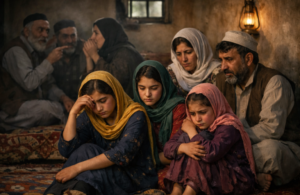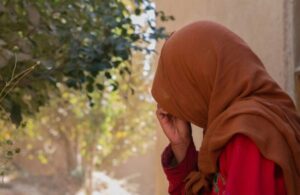MONITORING (SW) – Afghanistan’s currency, the afghani, has unexpectedly claimed the title of the world’s best-performing currency during the September quarter, as reported by Bloomberg’s data analysis.
Over this period, the afghani has surged by 9 percent in value, attributed primarily to a significant influx of humanitarian aid and a boost in trade activities with neighboring Asian countries. In an effort to assert control over their currency, the Taliban have implemented various measures, including prohibiting the use of US dollars and Pakistani rupees in local transactions.
Moreover, they have imposed stringent restrictions on the outflow of US dollars from the country. The regime has even gone as far as to criminalize online currency trading, threatening offenders with imprisonment, as Bloomberg highlights.
Despite this currency success, Afghanistan remains a nation grappling with pervasive poverty and a dire human rights record on the global stage. While Afghani has recorded a 14 percent gain in value over the past year, it currently holds the third position on the global currency performance list, trailing behind the currencies of Colombia and Sri Lanka.
Afghanistan’s isolation from the global financial system due to international sanctions is highlighted in a recent World Bank report. The report paints a grim picture, citing high unemployment rates, two-thirds of households struggling to meet basic needs, and a shift from inflation to deflation in the country.
In a bid to alleviate economic hardships, the United Nations has been dispatching regular shipments of US dollars, totaling up to $40 million, aimed at supporting impoverished Afghans for an extended period, starting from the end of 2021.
Currently, money changers, known locally as “sarraf,” play a pivotal role in facilitating foreign currency exchanges.
They operate stalls in markets or establish businesses in cities and villages across Afghanistan.
The open-air market of Sarai Shahzada in Kabul serves as the de facto financial center of the nation, where tens of millions of dollars are exchanged daily. As confirmed by the central bank, there are currently no trading restrictions in place.
Due to financial sanctions, almost all remittances to Afghanistan now rely on the Hawala money transfer system, upon which sarrafs heavily depend.
The United Nations estimates that Afghanistan requires approximately $3.2 billion in assistance for this year, yet only $1.1 billion has been provided, according to the financial tracking agency of the international organization.
Last year, the United Nations spent approximately $4 billion in response to the critical hunger threat faced by 41 million people in Afghanistan.
ENDS






